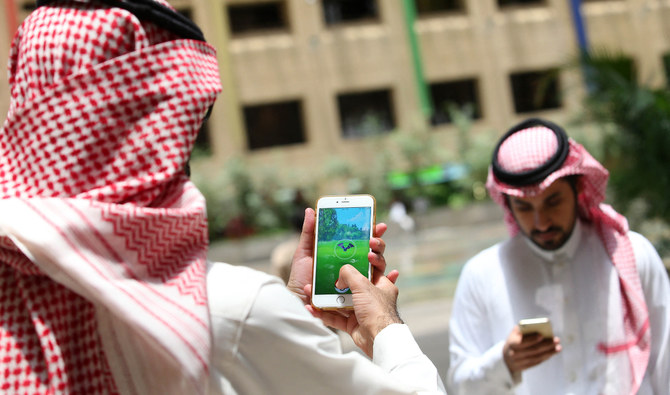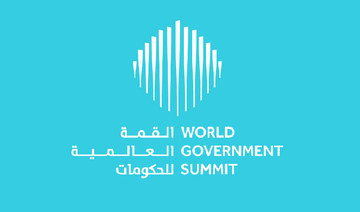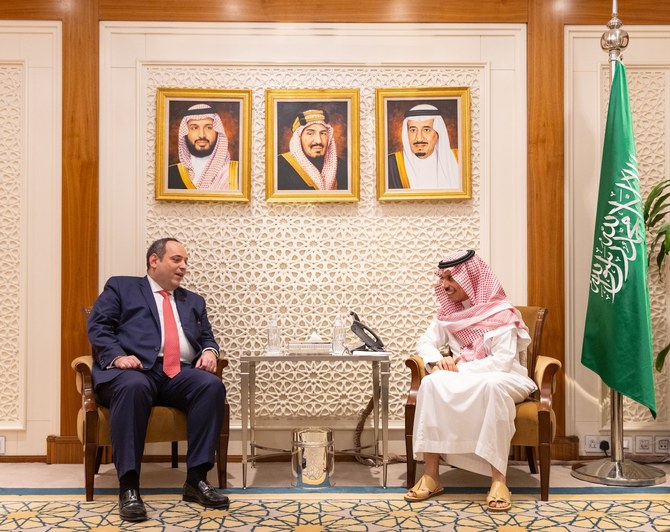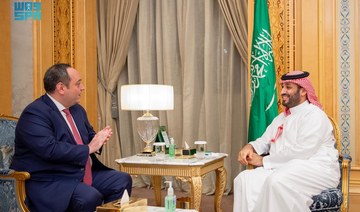DUBAI: Since the onset of the COVID-19 pandemic, the trend toward digitalization has been accelerating, with more people choosing to shop, work, bank, and communicate online.
At the same time, a host of state and private institutions have moved their products and services into cyberspace, taking advantage of growing internet access, better infrastructure, and technological advances.
As a result of this rapid transition, governments and business leaders have been eager to find ways to improve the digital quality of life among their service users. To help them, cybersecurity firm Surfshark has created the Digital Quality of Life Index.
Drawing on a sample of public opinion from 110 countries, the 2021 index has focused on the fundamental pillars of internet affordability and quality, e-infrastructure, e-security, and e-government.
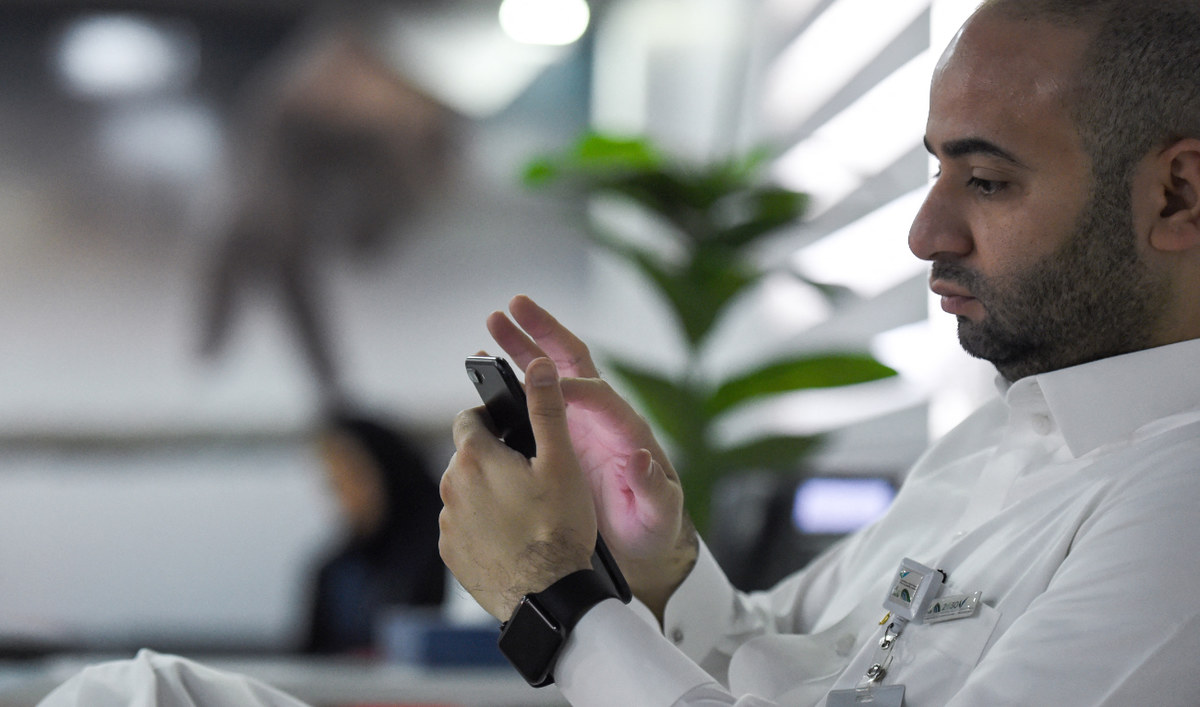
Saudi Arabia ranked 50th overall but came first in the category of most improved mobile speed. (AFP)
The study, first launched in 2019, is based on open-source information provided by the UN, the World Bank, Freedom House, the International Telecommunication Union, and other sources.
Saudi Arabia ranked 50th overall but came first in the category of most improved mobile speed. It was fifth for overall mobile speed at 97 megabytes per second and fifth for mobile internet stability.
Although the Kingdom had dropped five places over the previous year, its overall performance had improved as many more countries had been included in the new index.
Povilas Junas, a research project manager at Surfshark, told Arab News: “Clearly and undoubtedly, Saudi Arabia’s strength lies in mobile internet. Not only does the country rank first in that category, but the index shows how much the speed has increased over the past year.
“It also ranks fifth in mobile speed and mobile internet stability, which we take from analyzing how mobile internet varies from month to month.”
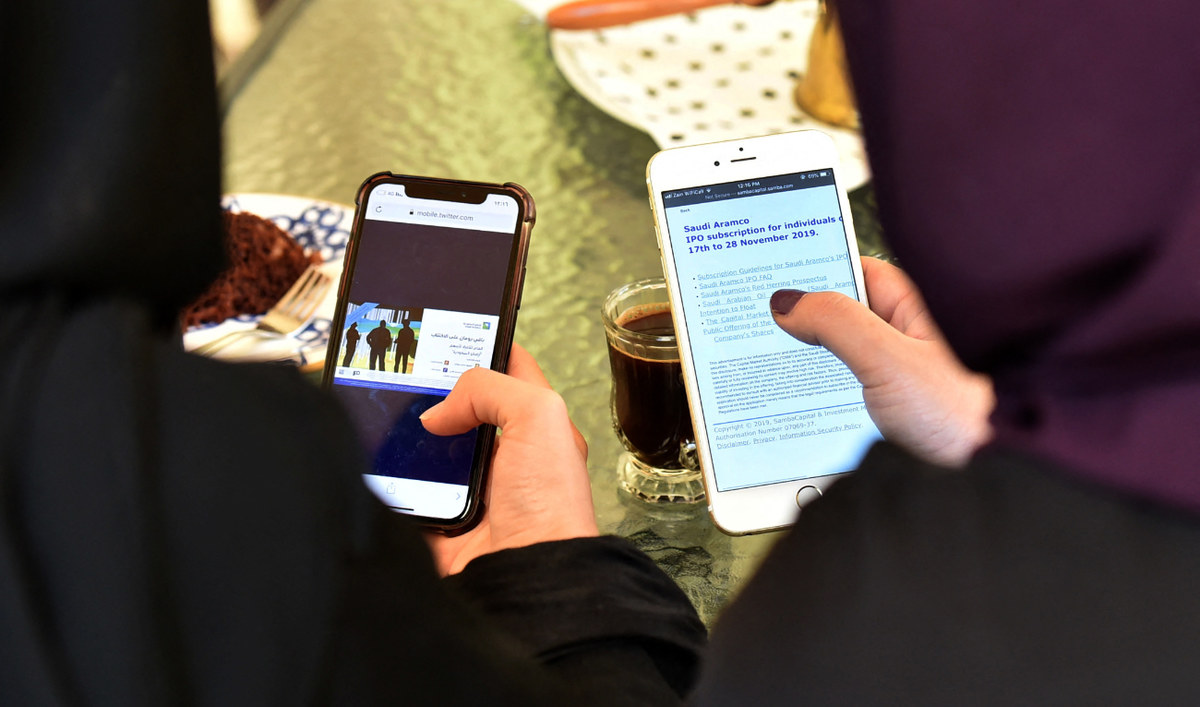
Saudi Arabia has made digital transition a key component of its Vision 2030 strategy to build a high-technology knowledge economy. (AFP)
Worldwide, digital tools have become an integral part of daily life, with the number of internet users jumping from 4.3 billion in 2019 to 4.7 billion today — constituting almost 60 percent of the global population.
Improving digital quality of life is therefore considered an urgent requirement for future prosperity and well-being as the world emerges from the COVID-19 pandemic.
Junas said: “We have to talk about the elephant in the room, which today is defined by the pandemic. Even prior to it, many people spent lots of time online, from TV to movies online, but due to the COVID-19 crisis, we do more things online — we work, study, and meet our friends and relatives because we couldn’t do that outside.
“It’s not only a social aspect but economics as well. Because a good digital quality of life means you can improve your economic status, offer services, and start your own business, as you can interact with partners and customers on the other side of the world.
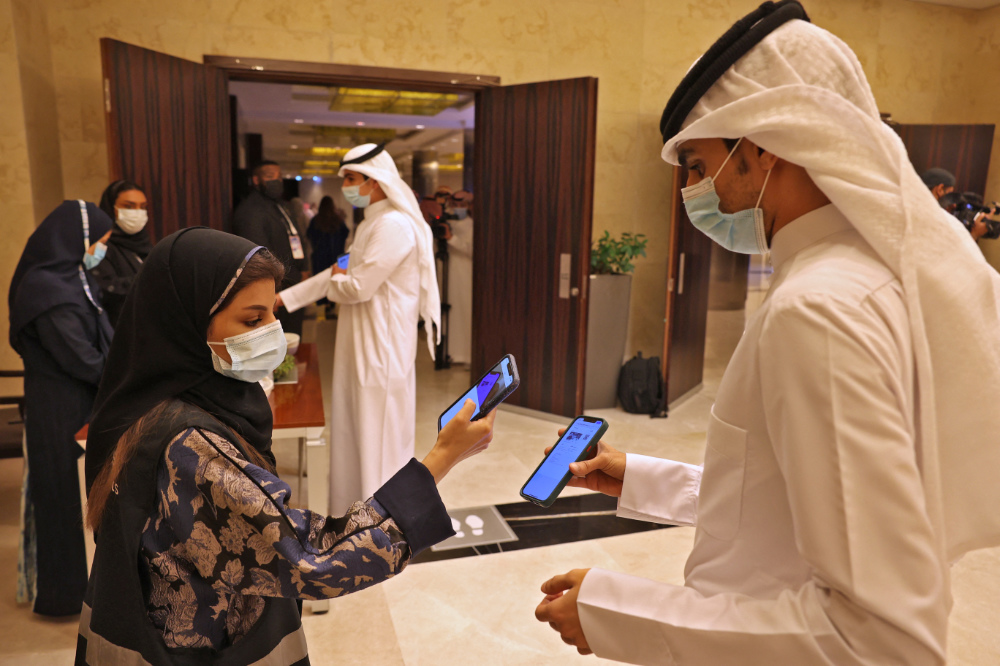
Since the onset of the COVID-19 pandemic, the trend toward digitalization has been accelerating. (AFP)
“Digital quality of life strongly affects both the social and economic development of our lives in general,” he added.
Saudi Arabia has made digital transition a key component of its Vision 2030 strategy to build a high-technology knowledge economy that was not reliant on income from oil exports.
According to PricewaterhouseCoopers, the Kingdom ranks among the top 10 developed countries in the world for its robust digital framework, with the pace of digitalization having accelerated prior to 2020.
Since 2017, PwC said, state and private-sector investment of around $15 billion in information and communications technology infrastructure has allowed Saudi Arabia to further leverage its digital infrastructure with a solid base.
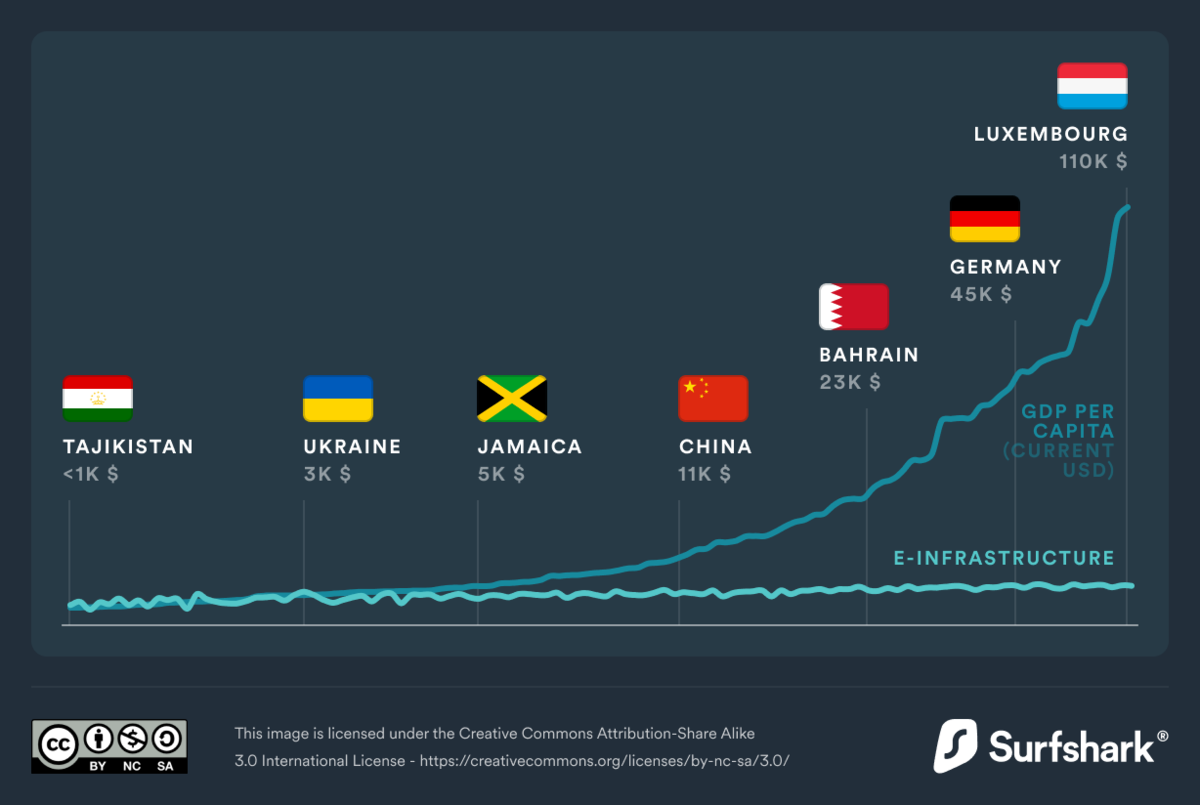
The Digital Quality of Life 2021 Index has focused on the fundamental pillars of internet affordability and quality, e-infrastructure, e-security, and e-government. (Supplied)
“The country’s digital backbone has enabled essential services, including learning, shopping, and even medical consultations, to carry on and protect the economy from the challenges of the pandemic,” PwC Middle East said in an April blog titled, “Vision 2030 in a Post-Pandemic World.”
It highlighted the example of one local online retailer, BinDawood Holding, which reported a 200 percent increase in average sales over a 10-day period in late March 2020, while its average order value rose by 50 percent and app installations by 400 percent.
The findings of the 2021 Digital Quality of Life Index study broadly confirmed the PwC blog’s assessment. Saudi Arabia was found to excel in internet quality, ranking 10th surpassing Singapore, France, and Israel, and in e-infrastructure coming 35th — about 20 percent better than the global average.
However, Saudi Arabia’s broadband internet speed showed room for improvement. Ranked at 41st, with 76 megabytes per second, it lagged far behind first-place contender Singapore, which enjoyed a speed of 230 megabytes per second.
FASTFACTS
• Digital Quality of Life Index was created by Surfshark to help govts. and business leaders.
• 2021 index measures internet affordability and quality, e-infrastructure, e-security and e-government.
“This is definitely an improvement that would allow Saudi Arabia to rank higher in the index,” Junas said.
Despite its high-quality internet connections, Saudi Arabia also has room for improvement in the affordability index too, scoring 70 percent below the global average.
Surfshark’s study suggested that residents had to work an average of almost nine hours in order to afford the cheapest broadband internet package — three hours and 13 minutes more compared with 2020.
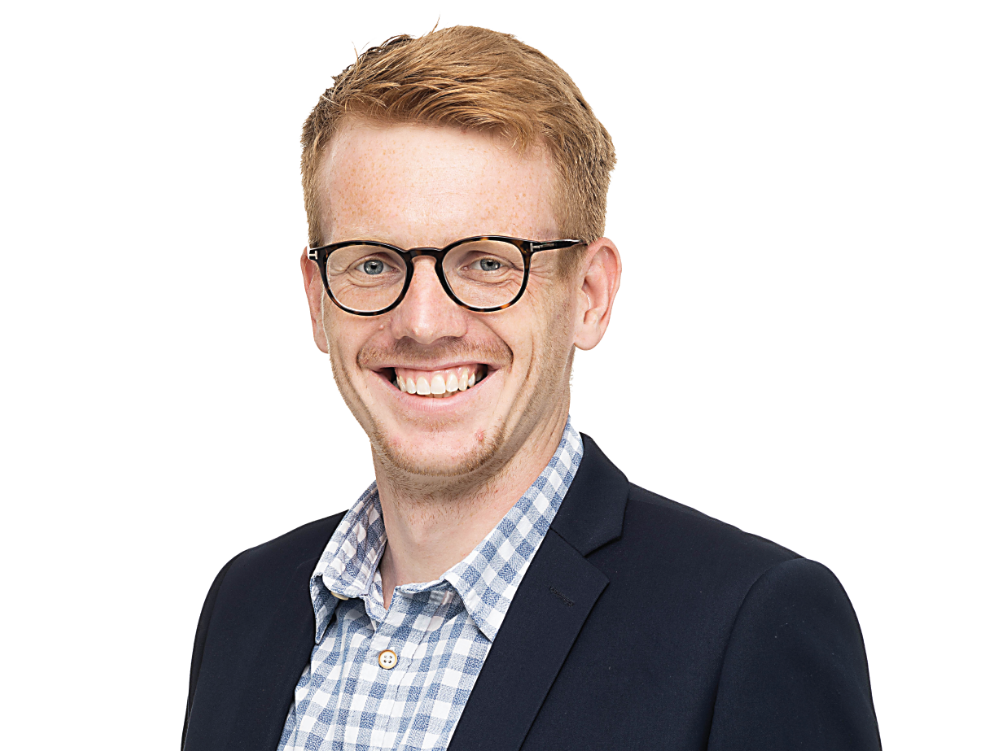
In order to boost its overall ranking in future indexes, Povilas Junas, a research project manager at Surfshark, noted that Saudi Arabia should prioritize improvements in its cybersecurity and privacy laws.
Then again, with a land area of 2.15 million square kilometers, the challenge Saudi Arabia faced in building and maintaining the infrastructure required for providing fast and stable broadband connections was something that Singapore, a small city state, did not have to contend with.
Meanwhile, PwC’s latest “Hopes and Fears” survey found that 79 percent of respondents in Saudi Arabia believed that advances in technology would improve their future job prospects, and close to 90 percent were confident of being able to adapt to using new technologies coming into their workplaces.
“This is a strong endorsement of the success of the digital transformation initiatives already underway,” the study report said. “According to our latest Middle East CEO survey, 59 percent of Middle East CEO respondents, compared with 49 percent globally, aim to increase their investments in digital transformation by 10 percent or more over the next three years, as a direct response to the impact of COVID-19.”

The number of internet users globally has jumped from 4.3 billion in 2019 to 4.7 billion today. (AFP)
The 2021 Digital Quality of Life Index study revealed Saudi Arabia’s e-security — at around 20 percent lower than the global average — to be one of the potential areas for improvement despite the palpable progress made in recent years.
Surfshark’s chief executive officer, Vytautas Kaziukonis, told Arab News: “Digital opportunities have proved to be more important than ever during the COVID-19 crisis, stressing the importance for every country to ensure fully remote operational capacities for their economies.
“That is why, for the third year in a row, we continue the digital quality of life research, which provides a robust global outlook into how countries excel digitally. The index sets the basis for meaningful discussions about how digital advancement impacts a country’s prosperity and where improvements can be made.”
In order to boost its overall ranking in future indexes, Junas noted that Saudi Arabia should prioritize improvements in its cybersecurity and privacy laws.
“If countries grant more privacy against different data brokers or any sort of services which can access users’ data, the score improves, as it’s quite an important pillar,” he said.
“Another point worth mentioning is that a broader online presence for the country’s government agencies would also improve the Kingdom’s score, which means some services offered by the government that are available offline for citizens could also be enabled online.
“Online services are crucial: If citizens can do their taxes, register for healthcare, or do many other services provided by the state online, then that can help improve the index score,” Junas added.
Twitter: @CalineMalek



